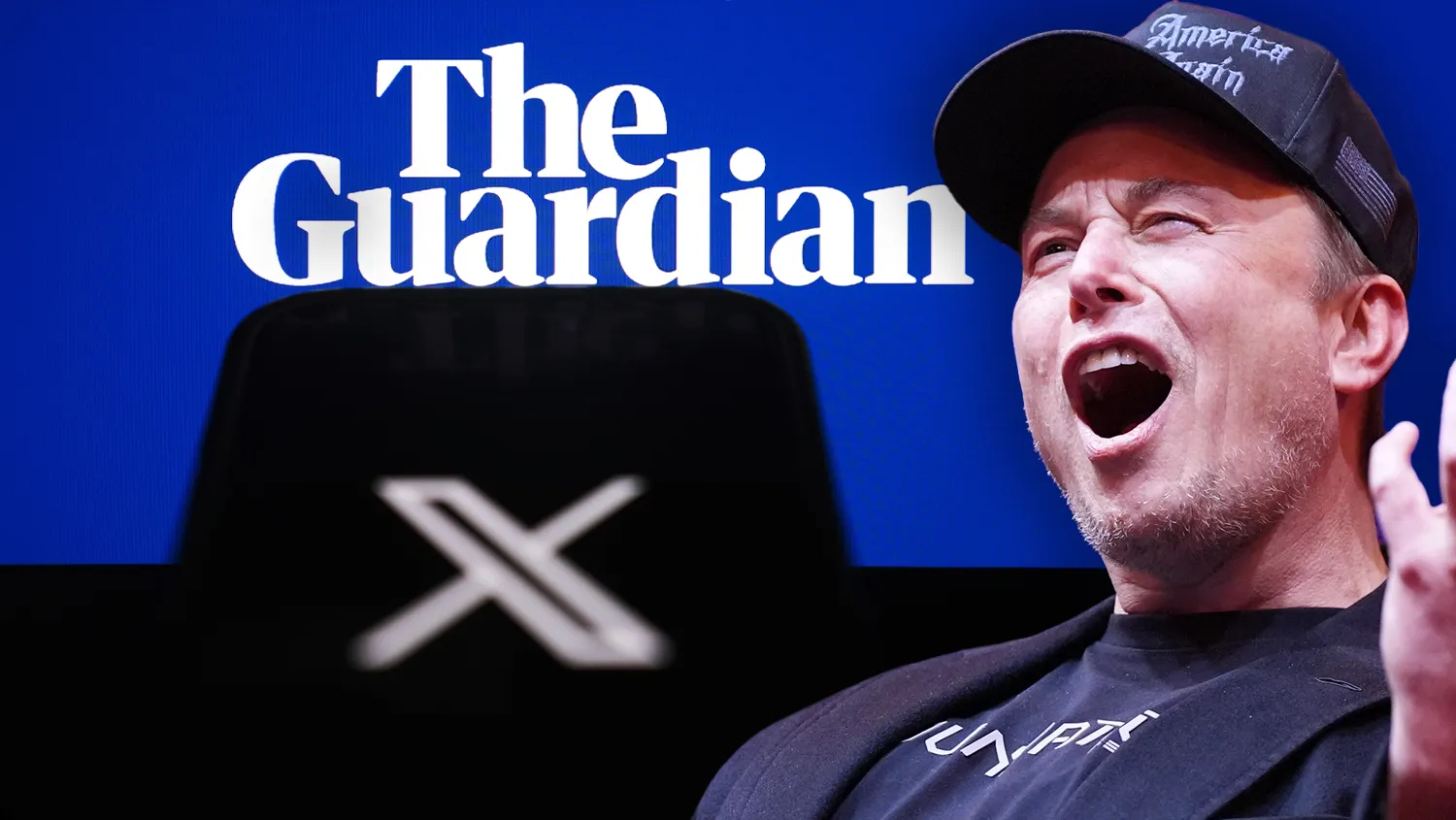The Guardian has officially announced its decision to stop posting on X, the social media platform formerly known as Twitter. The move reflects the news organization’s increasing concerns about the platform’s content and Elon Musk’s influence on political discourse.
Longstanding Concerns Reach a Boiling Point
In a statement to its readers, The Guardian announced that “the benefits of being on X were outweighed by the negatives.” The British news organization cited “often disturbing content,” including far-right conspiracy theories and instances of racism, as major factors in its decision. Coverage of the U.S. presidential election campaign, particularly, had solidified its stance.
“We wanted to let readers know that we will no longer post on any official Guardian editorial accounts on the social media site X,” the Guardian explained.
Audience and Content Impact
The Guardian has maintained more than 80 accounts on X, with a following of nearly 27 million people. For years, the platform provided a space for the publication to engage with its audience, but this shift signifies a significant reassessment of its social media strategy. According to the statement, X users will still be able to share Guardian articles, and the publication will continue to use the platform as a tool for news gathering and live reporting.
Controversial Content Sparks Exit
The Guardian’s decision aligns with criticisms from anti-hate groups and the EU regarding X’s content standards since Musk’s $44 billion acquisition. The Tesla CEO’s self-described “free speech absolutist” stance has seen the reinstatement of accounts previously banned for promoting divisive views, including those of conspiracy theorist Alex Jones and far-right influencer Andrew Tate.
Musk Responds
In response to The Guardian’s announcement, Musk described the outlet as “irrelevant” and a “laboriously vile propaganda machine.” The sharp comment reflects Musk’s previous confrontations with media outlets critical of his approach to content moderation.
Growing Trend of Withdrawals
The Guardian’s departure from X is part of a larger trend among organizations and institutions distancing themselves from the platform. In recent months, entities like NPR, PBS, and the Berlin Film Festival have withdrawn their official presence from X. While some, like North Wales police and the Royal National Orthopaedic Hospital, cited an increase in hate speech and abusive commentary, others simply noted that X no longer aligned with their values.
“Social media can be an important tool for news organizations and help us reach new audiences,” The Guardian said, “but X now plays a diminished role in promoting our work.”
Implications for Media and Public Discourse
The Guardian’s decision to depart from X underscores a changing dynamic between social media platforms and news organizations. With a platform known for its quick dissemination of information, X’s shift under Musk has sparked concern about the impact on public discourse. Critics argue that X’s moderation policies, particularly regarding hate speech, could create an environment hostile to respectful dialogue.
Looking Ahead
The Guardian made it clear that while official accounts will no longer post on X, individual reporters may still use the platform as needed. This decision leaves the door open for continued engagement with stories that unfold on X while reducing its official presence.
Way Forward
As social media continues to shape news and information dissemination, The Guardian’s departure from X marks a significant shift. With the influence of large platforms on public opinion growing, the decision by one of the world’s most recognized news brands signals potential changes ahead in the intersection of news media and social networks.
Related Post
-
Elon Musk to Lead Trump’s New ‘DOGE’ Department











